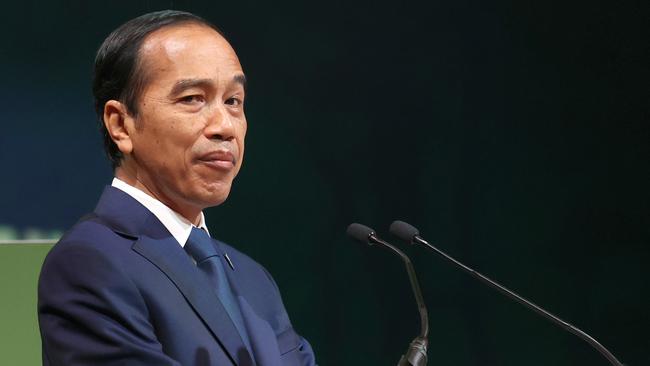Trade boom carries Anthony Albanese to Jakarta
Anthony Albanese flies into Indonesia this weekend armed with bumper bilateral trade figures which rose more than 76 per cent in 2021.

Anthony Albanese flies into Indonesia this weekend armed with bumper bilateral trade figures which rose more than 76 per cent in 2021, thanks in large part to a boom in Australian exports of coking coal, iron ore and wheat.
Just days before his election victory, Mr Albanese told the National Press Club that Indonesia would grow to become a global economic giant and “we need to strengthen that economic partnership”.
His first visit as Prime Minister to Jakarta on Sunday comes as new figures show soaring trade in goods between the two countries last year, including a massive jump in Australian commodities exports that have contributed to the Indonesian economy’s bounce back from a pandemic-induced slump.
Indonesia’s trade ministry hailed the figures, crediting the Indonesia Australia Comprehensive Economic Partnership Agreement (IA-CEPA), which came into force under the Morrison government in July 2020.
While some in Indonesia have questioned the effectiveness of the sprawling trade deal, Indonesia’s bilateral trade negotiations director Johni Martha said two-way goods trade with Australia rose to $US12.6bn ($15.81bn) in 2021, up from $US7.15bn the year before. The uptick means Indonesia was among Australia’s top 10 export destinations in 2021, after wheat exports increased almost fivefold to $1.8bn and coal sales almost trebled to $1.618bn.
Indonesian exports to Australia reached $US3.2bn, up 28.62 per cent, while Australian exports jumped 102.84 per cent to $US9.4bn thanks to a bumper 2021 wheat crop and a sharp hike in demand for high-quality coking coal and iron ore.
Steel is now Indonesia’s third-largest export – after 2021 sales volumes doubled to almost $29bn – thanks to rising demand from China, which is importing high volumes to fuel its infrastructure stimulus program.
Mr Martha told a webinar on Tuesday that one of the “concrete benefits of IA-CEPA” was the import of higher volumes of Australian coking coal to power Indonesia’s steel export industry.
“Another example is Australian wheat, processed in Indonesia to be food products (such as Indomie instant noodles) that are then exported to the global market,” he said.
Mr Martha said the trade figures showed the IA-CEPA “economic powerhouse” concept – in which Australian imports are processed into goods which Indonesia can then export – was working.
“If we only look at the numbers we might have some questions, but if we look at the components of those imports it will make sense … because over 90 per cent of Indonesia’s imports from Australia were raw and auxiliary materials,” he said.
Additional reporting: Dian Septiari




To join the conversation, please log in. Don't have an account? Register
Join the conversation, you are commenting as Logout